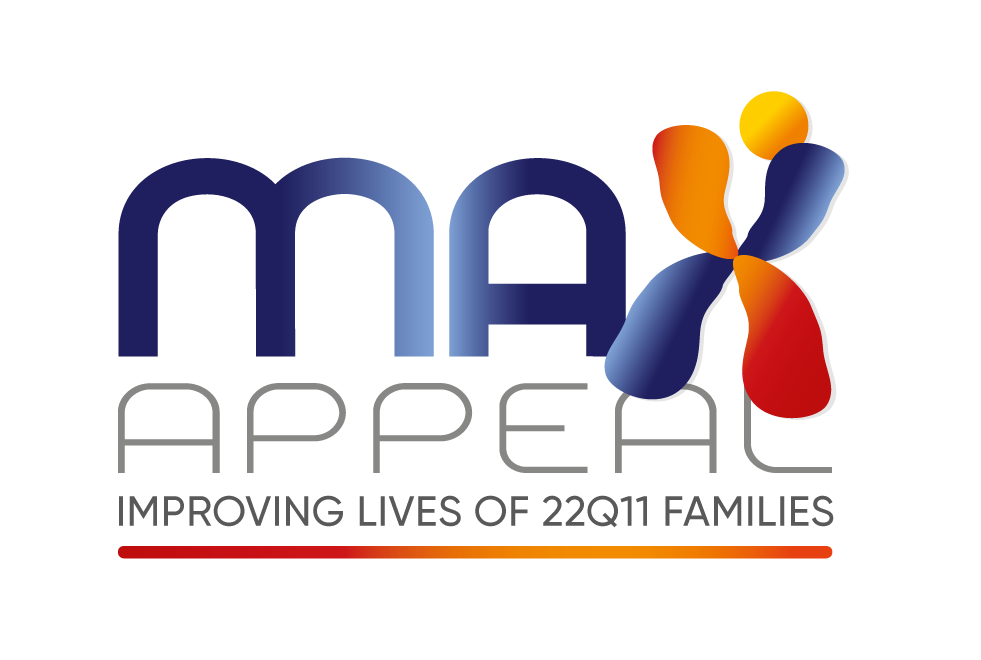Medical Assessments
These checks are drawn from the Max Appeal Consensus Document for the Care and Diagnosis of 22q11.2 deletion. They have been recommended by the consultant authors and have been placed in this easy to access format for ease of reference by individuals, parents/carers and other medical specialists.
Checks recommended to be carried out at DIAGNOSIS:
Ionised calcium and PTH (Parathyroid hormone)
TSH (thyroid stimulating hormone)
FBC (full blood count and differential)
Immunologic evaluation
Opthalmology (eyes)
Evaluate palate
Audiology (hearing)
Scoliosis
Renal ultrasound
ECG
Echocardiogram
Development
Socialisation/functioning
Psychiatric/emotional/behavioural
Systems review
Deletion studies of parents
Genetic counselling
Checks recommended to be carried out DURING INFANCY (less than 1yr)
Ionised calcium and PTH (Parathyroid hormone)
FBC (full blood count and differential)
Evaluate palate
Audiology (hearing)
Development
Socialisation/functioning
Systems review
Checks recommended to be carried out PRE-SCHOOL ( 1 - 5 yrs):
Ionised calcium and PTH (Parathyroid hormone)
TSH (thyroid stimulating hormone)
FBC (full blood count and differential)
Immunologic evaluation
Opthalmology (eyes)
Evaluate palate
Audiology (hearing)
Cervical spine
Scoliosis
Dental evaluation
Development
Socialisation/functioning
Systems review.
Checks recommended to be carried out SCHOOL AGE (6 - 11yrs):
Ionised calcium and PTH (Parathyroid hormone)
TSH (thyroid stimulating hormone)
FBC (full blood count and differential)
Dental evaluation
School performance
Socialisation/functioning
Psychiatric/emotional/behavioural
Systems review.
Checks recommended to be carried out during ADOLESCENCE (12 - 18yrs):
Ionised calcium and PTH (Parathyroid hormone)
TSH (thyroid stimulating hormone)
FBC (full blood count and differential
Scoliosis
Dental evaluation
School performance
Socialisation/functioning
Psychiatric/emotional/behavioural
Systems review
Genetic counselling
Checks recommended to be carried out during ADULT LIFE (over 18yrs):
Ionised calcium and PTH (Parathyroid hormone)
TSH (thyroid stimulating hormone)
FBC (full blood count and differential)
Audiology (hearing)
Dental evaluation
ECG
Socialisation/functioning
Psychiatric/emotional/behavioural
Systems review
Genetic counselling
Explanation of the recommended assessments:
Endocrinology tests: Calcium, PTH, and TSH In infancy these should be checked every 3-6 months, in childhood every 5 years and every 1-2 years thereafter although the TSH should be measured annually. Calcium levels should be checked both pre-and post-operatively and regularly during any pregnancies.
Full blood count and differential: A check on the haemoglobin levels (low levels indicate anaemia) and the total number of white cells, plus the neutrophil and lymphocyte count.
Immunologic evaluation: Immunoglobulin levels and T cell function. Flow cytometry should be done at birth and again at age 9-12 months before administering any live vaccines. Flow cytometry distinguishes between the types of lymphocyte present. The CD4 marker identifies the T helper cells that are needed to stimulate the function of other T cells.
Evaluate palate:
In infancy: visualise the palate and evaluate for feeding problems and nasal regurgitation.
In toddlers – adults evaluate nasal speech quality
Cervical spine: Multiple X-rays should be done: Anterior/posterior (from the front and back) Lateral (sideways) Extension (tipping the head back) Open mouth and the Base of the skull. Expert opinion is divided about the advisability of routine X-rays. Symptoms of cord suppression are an indication for urgent neurological referral.
Scoliosis exam: This checks for sideways curvature of the spine
Renal Ultrasound: Checks that both kidneys are in place and look normal but does not check how they function.
ECG: (ElectroCardiogram) This tests the function by measuring the rhythm of the heart beat.
Echocardiogram: This tests the structure of the heart and valves and can show the pumping action.
Psychiatric/emotional/behavioural: Vigilance for changes in behaviour, emotional state and thinking, including hallucinations and delusions. In teens and adults assessment would include at risk behaviours (sexual activity, alcohol/drug use etc).
Deletion studies of parents: On diagnosing a child with 22q11DS both parents should be checked for the deletion.

